How a Man of Prayer was used by God
As a token of the respect the Jewish people presented Field Marshall Montgomery with a Bible inscribed with words of gratitude for the victory at El Alamein. The Bible was on display at a book launch event in the House of Lords in November to mark the 70th anniversary of the battle.
"Before Alamein we never had a victory. After Alamein we never had a defeat."
Winston Churchill
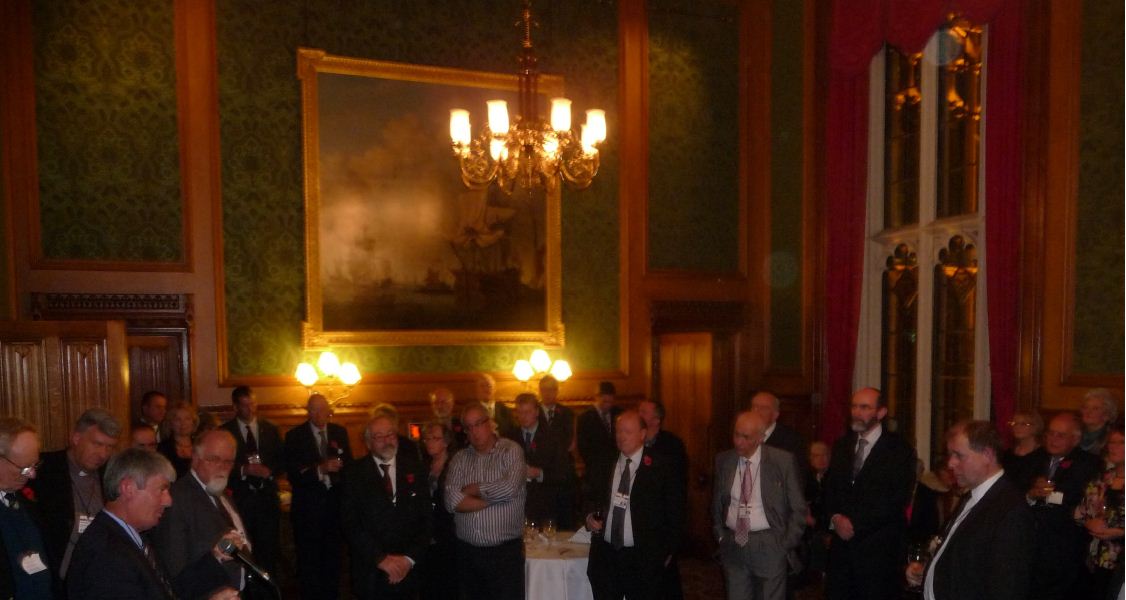
Gathering in the House of Lords to mark El-Alamein anniversary
Had Hitler's army in North Africa not been stopped at the Battle of El Alamein, the Nazis would have swept into the Middle East and the Jews living there with murderous intent.
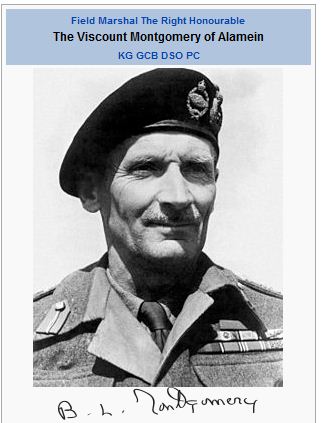 In the late 1980's historian and author Kelvin Crombie and Prof Alex Carmel of Haifa University together tracked down a Bible which the Jewish leadership of Eretz Israel had given to the British commander after that decisive victory in the sands of North Africa. In the late 1980's historian and author Kelvin Crombie and Prof Alex Carmel of Haifa University together tracked down a Bible which the Jewish leadership of Eretz Israel had given to the British commander after that decisive victory in the sands of North Africa.
General Bernard Montgomery was the man chosen by God to take charge of this Battle; a Christian man known to call his troops to pray before every battle and a man who was a brilliant leader of men.
Held in the UK office of CMJ (Churches Ministry among Jewish People) this beautifully ornate Bible (a Hebrew Tenach ['Old Testament']) were inscribed these words:
"Field Marshall Viscount Montgomery, the gallant leader of the victorious British forces by whose hand God has placed salvation in Zion in the days of El Alamein."
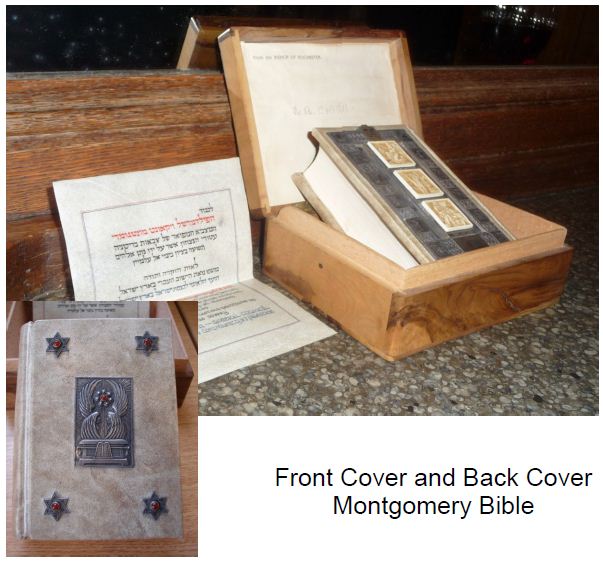 The Montgomery Bible and accompanying words express the sentiment of the Jewish people in 1942. The Montgomery Bible and accompanying words express the sentiment of the Jewish people in 1942.
Their anxiety was justified, for at the time of the First Battle of El Alamein in July 1942 the German high command in Berlin had sanctioned the despatch to the Middle East of a specialised death squad known as the Einsatzengruppen Egypt.
This specialised murder squad was to enlist the active involvement of local sympathisers and together they were to annihilate the 70,000 Jewish people in Egypt and the 500,000 Jewish people in Eretz Israel.
Working closely with the Nazi hierarchy for the outworking of this gruesome plan was the Mufti (Muslim spiritual leader) of Jerusalem, Haj Amin al Husseini, who was in Axis occupied Europe forwarding the Nazi cause.
Lord Montgomery and Kelvin Crombie
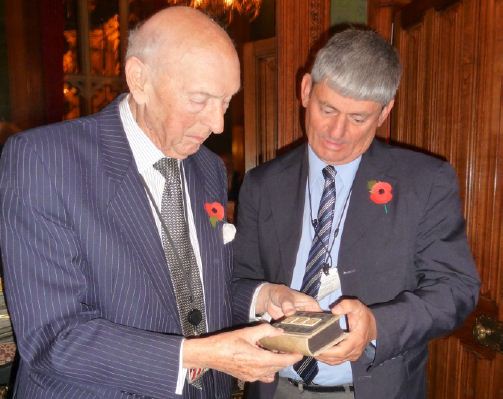 In 1992 Crombie travelled to El Alamein and together with Allied, German and Italian veterans recalled the 50thanniversary of this battle. Shortly later during a meeting with Israeli Prime Minister Yitzhak Rabin, he spoke of his visit to El Alamein. Rabin then spoke quite passionately about the danger then facing the Jewish people in Eretz Israel had the Germans won at El Alamein. In 1992 Crombie travelled to El Alamein and together with Allied, German and Italian veterans recalled the 50thanniversary of this battle. Shortly later during a meeting with Israeli Prime Minister Yitzhak Rabin, he spoke of his visit to El Alamein. Rabin then spoke quite passionately about the danger then facing the Jewish people in Eretz Israel had the Germans won at El Alamein.
A similar attitude was voiced by General Uzi Narkiss (the commander of the Israeli forces who captured Jerusalem in 1967) when Kelvin also interviewed him. It was clear that this sentiment was known by every section of the Jewish community who lived in the land of Israel during that traumatic period. Describing these events Kelvin spoke about his new book 'El Alamein: Stemming the Tide of the Holocaust'.
Hosting the gathering in the House of Lords was the present Viscount Montgomery, son on Field Marshall Montgomery.
The seventy-five guests were made up of members of the House of Lords, bishops, military personnel, members from the Jewish community and members of Christian organizations who support the Jewish people and Israel,
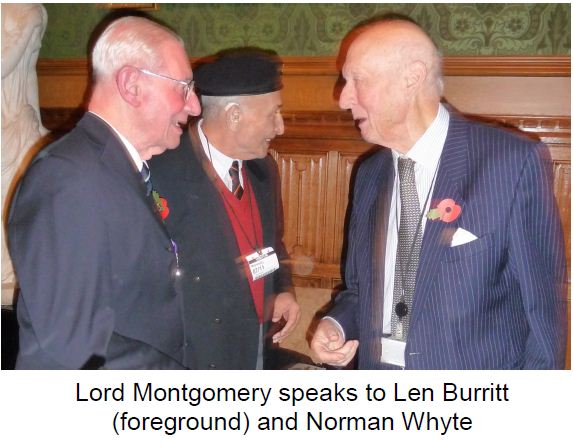 During the reception Lord Montgomery spoke personally with former 'Desert Rats' Len Burritt and Norman Whyte. Len, in his 95th year, addressed those present in a strong voice saying how wonderful it was to be there with Lord Montgomery's son having fought under his father. Norman paid tribute to the four young soldiers from the 101RE Bomb Disposal Unit serving in Afghanistan, who were also at the Reception. During the reception Lord Montgomery spoke personally with former 'Desert Rats' Len Burritt and Norman Whyte. Len, in his 95th year, addressed those present in a strong voice saying how wonderful it was to be there with Lord Montgomery's son having fought under his father. Norman paid tribute to the four young soldiers from the 101RE Bomb Disposal Unit serving in Afghanistan, who were also at the Reception.
As everyone left they were given a copy of Kelvin's book together with a commemorative bookmark.
Many had not known about the significance of El Alamein in saving the Jewish population of Egypt and Palestine. All thanked Lord Montgomery for his gracious hospitality and Kelvin for his excellent talk.
------------
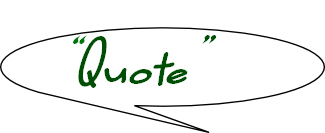
And those who came said....
‘An Awe inspiring occasion and would not have missed it for anything!’
‘A brilliant talk by Kelvin Crombie.’
‘I had a great chat with the grandson of one of the men who fought in the campaign who is Jewish.’
‘Kelvin was his usual brilliant self. I was intrigued by all he had discovered on the importance of the Battle and the evil plan that would have been hatched to sweep into Palestine and annihilate the Jews living there. I just didn’t realize the importance and especially since my father was in
North Africa too.’
‘Kelvin mentioned that people like Rees Howells in S. Wales Bible College had been alerted by the Lord to pray..’
‘Lord Montgomery was a wonderful and gracious host who set the tone for the event.’
‘Absolutely astounding!’
‘Just to say the talk was outstanding yesterday and I was privileged to be in the company of the
ex and existing servicemen who were present.’
‘I have already dipped into the book and it is fascinating.’
‘The opportunity to hear Kelvin’s talk and get his book plus ‘touch that Bible’ what an honour.’
‘We thought it was a significant occasion and it was a privilege to be there.’
‘Kelvin is an excellent speaker.’
‘This was quite significant in that it provides a historical benchmark, involved both the Christian and Jewish communities in a common interest.’
‘I believe that support for the Jewish people and the State of Israel is tremendously important as a bridge between Church and Synagogue, and it is those who value the Bible on both sides (and it was a Bible that was the occasion for the event) who can truly have worthwhile dialogue.’
‘I thought the event was wonderful.’
‘Amazing to see Montgomery’s son and those veterans who actually fought in the Battle and the
Bible given to Montgomery by the Jewish community.’
‘I enjoyed Kelvin’s talk although I knew very little on the subject.’
‘I enjoyed the event and thought the people warm and the tone welcoming.’
‘I had already been in the desert four years when the battle took place and probably been at over 50 battles before that one. Afterwards, of course, we went to Tunis and fought for 2000 miles in 180 days before going on to the invasion of Italy at Salerno and returning to England for landing on Juno beach on D- Day morning. I thought the evening went perfectly and one which I shall remember for a very long time.’ (Len Burritt)
Footnotes:
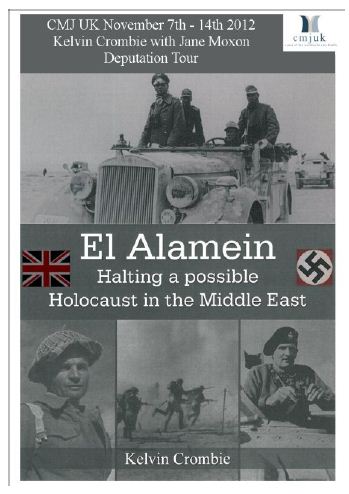 Kelvin Crombie's new book 'El Alamein: Halting a possible Holocaust in the Middle East' is available from CMJ UK.
Tel. 01623 883960. Cost £10 or the Koorong Bookshop.
The First Battle of El Alamein (July 42) was indecisive, but left the Axis forces dangerous close to Alexandria and major population centres.
The Second Battle of El Alamein took place over 20 days from 23 October – 11 November 1942 near the Egyptian coastal city of El Alamein, and the Allies' victory marked a major turning point in the Western Desert Campaign of the Second World War. It followed the First Battle of El Alamein, which had stalled the Axis advance into Egypt, after which, in August 1942, Lieutenant-General Bernard Montgomery had taken command of the British Eighth Army from General Claude Auchinleck.
This Allied victory turned the tide in the North African Campaign and ended the Axis threat to Egypt, the Suez Canal, and of gaining access to the Middle Eastern and Persian oil fields via North Africa.
From a psychological perspective, El Alamein revived the morale of the Allied side, being the first major offensive against the Germans since the start of the European war in 1939 in which the Western Allies achieved a decisive victory.
|